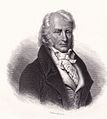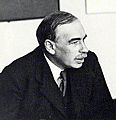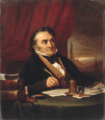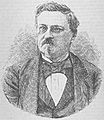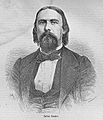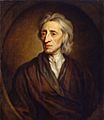Liberalism facts for kids
Liberalism is a way of thinking about how a government should work and how people should live together in a society. It's all about freedom and individual rights.
Contents
What Liberals Believe
Liberals believe that every person should have the chance to live freely and pursue their own goals. However, different liberals have slightly different ideas about how to make this happen.
Some liberals think that true freedom is only possible if everyone has a fair chance. They believe governments should help people by providing things like good education and health care. These services are often paid for by taxes.
Other liberals believe that people should be more responsible for their own education and health care. They think taxes should be lower and the government should have less control over people's lives. These people are sometimes called libertarians.
Most liberal governments today try to provide some education and health care for their citizens.
Other important ideas for many liberals include:
- Free markets (market economy): This means people should be free to buy and sell goods and services without too many rules from the government.
- Peace: Liberals generally believe that countries should try to avoid wars and violence.
How Liberalism Started
A long time ago, kings or queens often had all the power. People had very little freedom. But a few hundred years ago, thinkers called philosophers started writing about new ideas. They talked about how important freedom was.
Some famous philosophers who wrote about these ideas include Simón Bolívar, John Stuart Mill, and Jeremy Bentham. Their ideas became very popular.
The United States was one of the first countries to create a constitution based on these new ideas. This constitution guaranteed certain rights to all citizens. These rights included:
- Freedom to speak their minds.
- Freedom for newspapers and media.
- Freedom to choose their own religion.
- The right to gather in groups.
- The right to own weapons (right to bear arms).
- The right to ask their government to make changes.
- The right to remove leaders they didn't like.
Another big idea that became popular was free trade. This means countries should be able to buy and sell goods with each other easily. A key thinker who supported free trade was Adam Smith.
Liberalism Today Around the World
Today, many wealthy countries are liberal democracies. This means they have free elections and generally support free trade. However, some oil-rich countries are exceptions; they might be wealthy but not always liberal or democratic.
Many poorer countries are dictatorships. They often have strict rules about trade. China is an example of a country that is becoming rich quickly. It is trying to mix a dictatorship with free trade. People are still watching to see if this combination can truly work.
While all liberal governments support free elections, other liberal ideas can be very different from country to country. If you want to know about liberalism in a specific country, you can often find an article called "Liberalism in..." followed by the country's name.
Liberalism in the United States
The government of the United States was built on the ideas of democracy and personal freedom. However, the word "liberalism" has changed its meaning over time in the U.S.
Today, liberals in the United States still believe in democracy and freedom. But many also support other ideas. While not all U.S. liberals agree on everything, most believe:
- That everyone should have an equal chance to succeed.
- That the government should provide some education and health care for all. This might mean increasing taxes.
- That richer people should pay a higher percentage of their income in taxes than poorer people.
- That personal freedoms and rights are very important and must be protected.
- That peace is important, and the government should work with other countries instead of starting many wars on its own.
Liberals in the United States are sometimes called "Progressives." The biggest liberal political party in the U.S. is the Democratic Party. The Green Party is seen as even more liberal than the Democrats.
Liberalism in Australia
Liberals in Australia have different ideas about government compared to liberals in the United States. Most Australian liberals believe the government should not increase taxes. They prefer a government with lower taxes and less control over the economy.
The main liberal political party in Australia is the Liberal Party of Australia. This party also believes that the government should support traditional values and morals. This is something that many conservatives also believe.
Related pages
Images for kids
-
John Milton's Areopagitica (1644) argued for the importance of freedom of speech
-
Benjamin Constant, a Franco-Swiss political activist and theorist
-
Thomas Hill Green, an influential liberal philosopher
-
John Maynard Keynes, one of the most influential economists of modern times
-
The Great Depression with its periods of worldwide economic hardship formed the backdrop against which Keynesian Revolution took place (the image is Dorothea Lange's Migrant Mother)
-
Mary Wollstonecraft, widely regarded as the pioneer of liberal feminism
-
John Stuart Mill, whose On Liberty greatly influenced the course of 19th century liberalism
-
John Locke, who was the first to develop a liberal philosophy
-
Montesquieu, who argued for the separation of the powers of government
-
As a liberal nationalist, K. J. Ståhlberg, the President of Finland, anchored the state in liberal democracy
-
January 1933 color photo of Franklin D. Roosevelt as the Man of the Year of Time
-
Raif Badawi, a Saudi Arabian writer and the creator of the website Free Saudi Liberals, who was sentenced to ten years in prison and 1,000 lashes for "insulting Islam" in 2014
See also
 In Spanish: Liberalismo para niños
In Spanish: Liberalismo para niños




